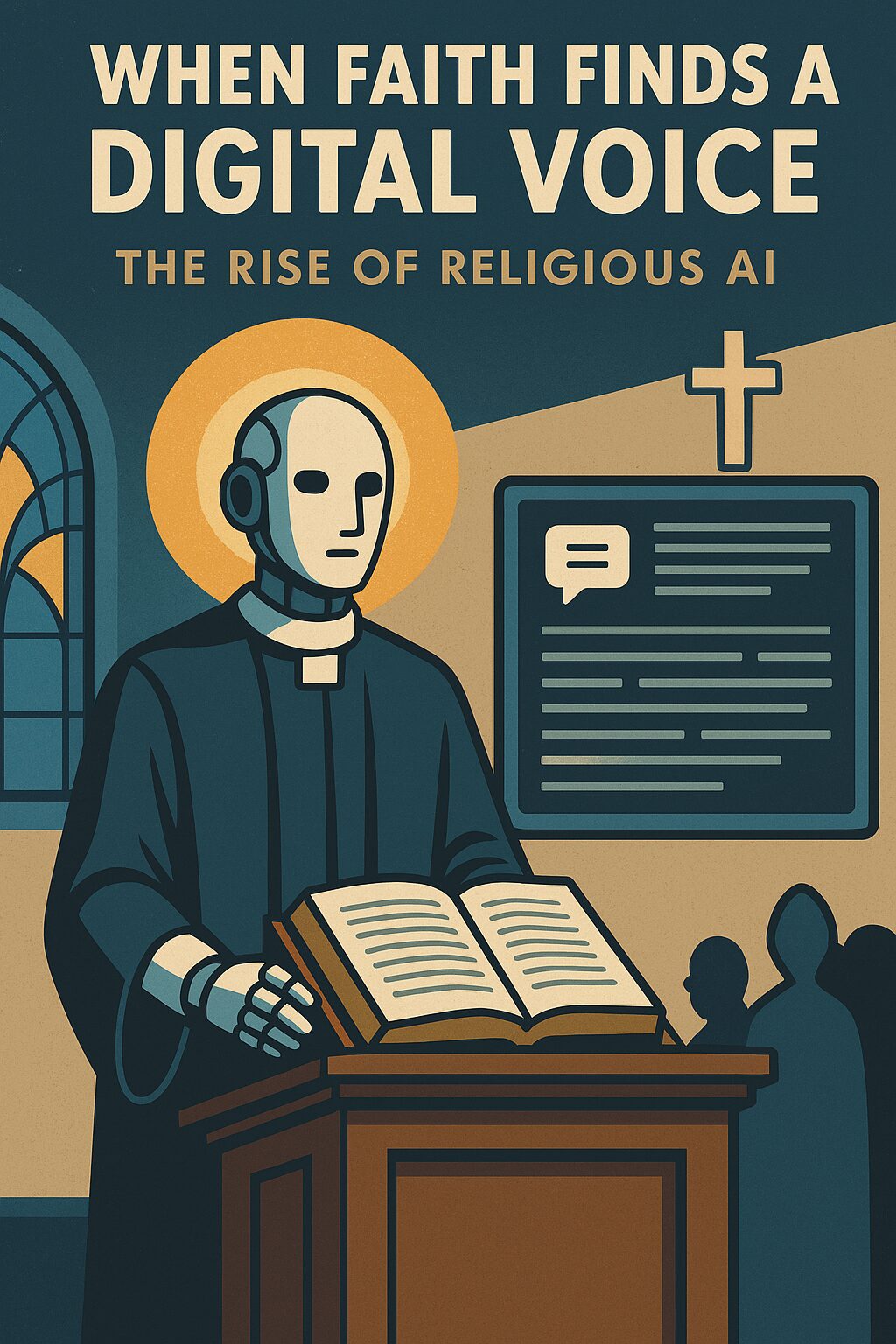Introduction
In 2025, artificial intelligence is no longer confined to science labs or corporate boardrooms—it’s entering the sacred halls of worship. From sermon-writing bots to AI-powered spiritual advisors, Religious AI is transforming how faith is practiced, preached, and perceived.
This article explores the emergence of AI in religion, its practical applications, ethical dilemmas, and the growing debate over whether algorithms can truly guide the soul.
🤖 What Is Religious AI?
Religious AI refers to artificial intelligence systems designed to support or simulate religious functions. These include:
- Generating sermons and religious texts
- Offering spiritual guidance via chatbots
- Translating sacred scriptures
- Visualizing religious narratives
- Assisting in ritual planning and pastoral care
Examples include Rabbi Bot, AI sermon generators, and virtual religious assistants used by churches, mosques, and temples worldwide.
🧠 How Algorithms Are Preaching
| Application | Description |
|---|---|
| Sermon Generation | AI tools mimic clergy styles to draft weekly sermons |
| Faith-Based Chatbots | Answer theological questions and offer daily prayers |
| Scripture Translation | AI accelerates multilingual access to sacred texts |
| Virtual Ritual Assistants | Help users observe religious practices and holidays |
| Religious Education | AI tutors personalize theological learning paths |
These tools are reshaping spiritual engagement—making it more accessible, but also more automated.
⚖️ Ethical and Theological Concerns
Religious AI raises profound questions:
- Authenticity: Can a machine deliver a message from God?
- Authority: Who validates AI-generated theology?
- Bias: Are AI models trained on inclusive religious perspectives?
- Privacy: Do spiritual chatbots collect sensitive belief data?
- Human Connection: Does AI erode the pastoral bond between clergy and congregants?
Institutions like the Vatican, Al-Azhar University, and Harvard Divinity School are now developing ethical frameworks to guide AI’s role in faith.
🌍 Global Reactions to Religious AI
| Supporters | Concerns |
|---|---|
| Tech-savvy clergy and educators | Fear loss of human touch in spiritual guidance |
| Faith communities seeking accessibility | Worry about doctrinal distortion and AI bias |
| Religious innovators and startups | Debate over AI’s theological legitimacy |
Some see AI as a tool for outreach and inclusion. Others warn it may become a digital golden calf.
📈 SEO Tips for Faith-Tech Content Creators
✅ Search-Friendly Titles
- “Religious AI: Can Algorithms Preach?”
- “Faith Meets Technology: The Rise of Religious AI”
✅ High-Impact Keywords
- “AI in religion 2025”
- “sermon generator AI”
- “ethical concerns religious AI”
✅ Metadata Optimization
- Alt Text: “AI system generating sermon content in a digital chapel”
- Tags: #ReligiousAI #FaithTech #AIandSpirituality #DigitalMinistry #EthicalAI
🔮 Future Outlook
Religious AI may soon:
- Personalize spiritual journeys
- Facilitate interfaith dialogue
- Create immersive worship experiences in virtual reality
- Challenge traditional notions of divine inspiration
But its success depends on ethical oversight, theological integrity, and human-centered design.
Conclusion
As algorithms begin to preach, the line between divine inspiration and digital simulation blurs. Religious AI offers new possibilities—but also demands reflection.
Faith may be eternal, but its expression is evolving. The question is no longer can AI preach—but should it?

